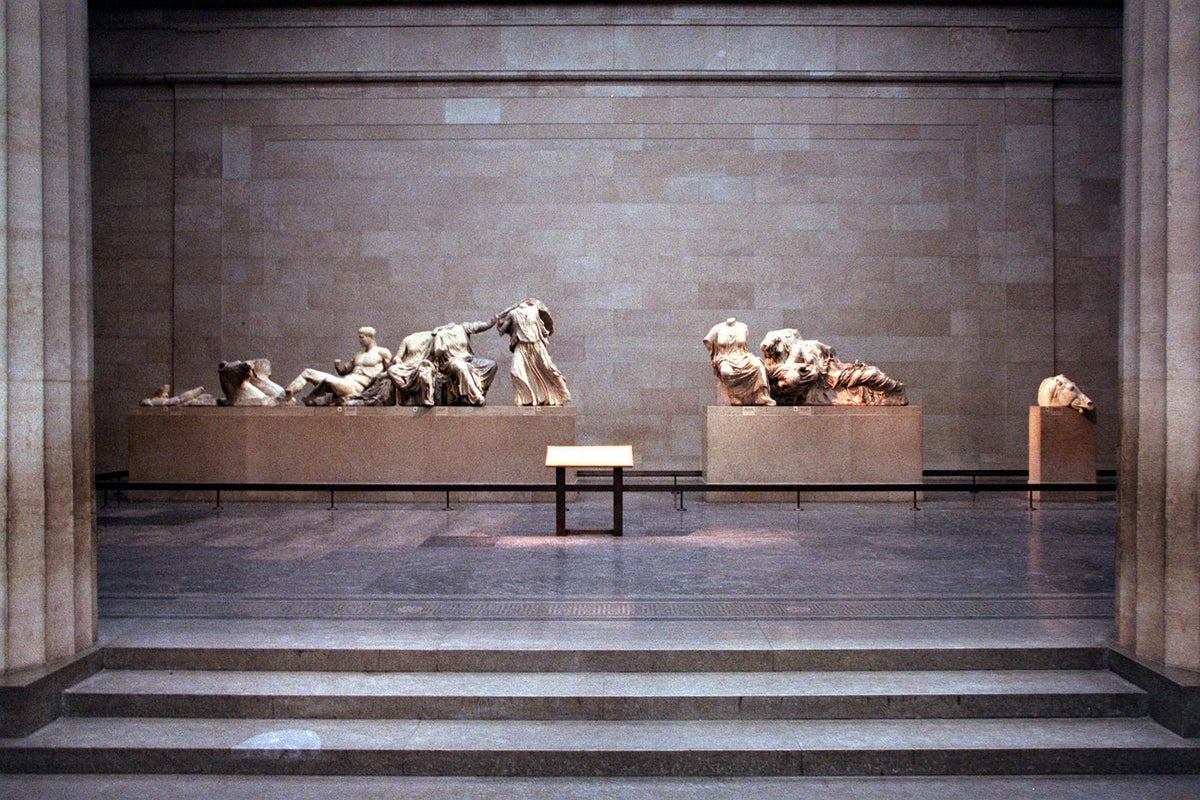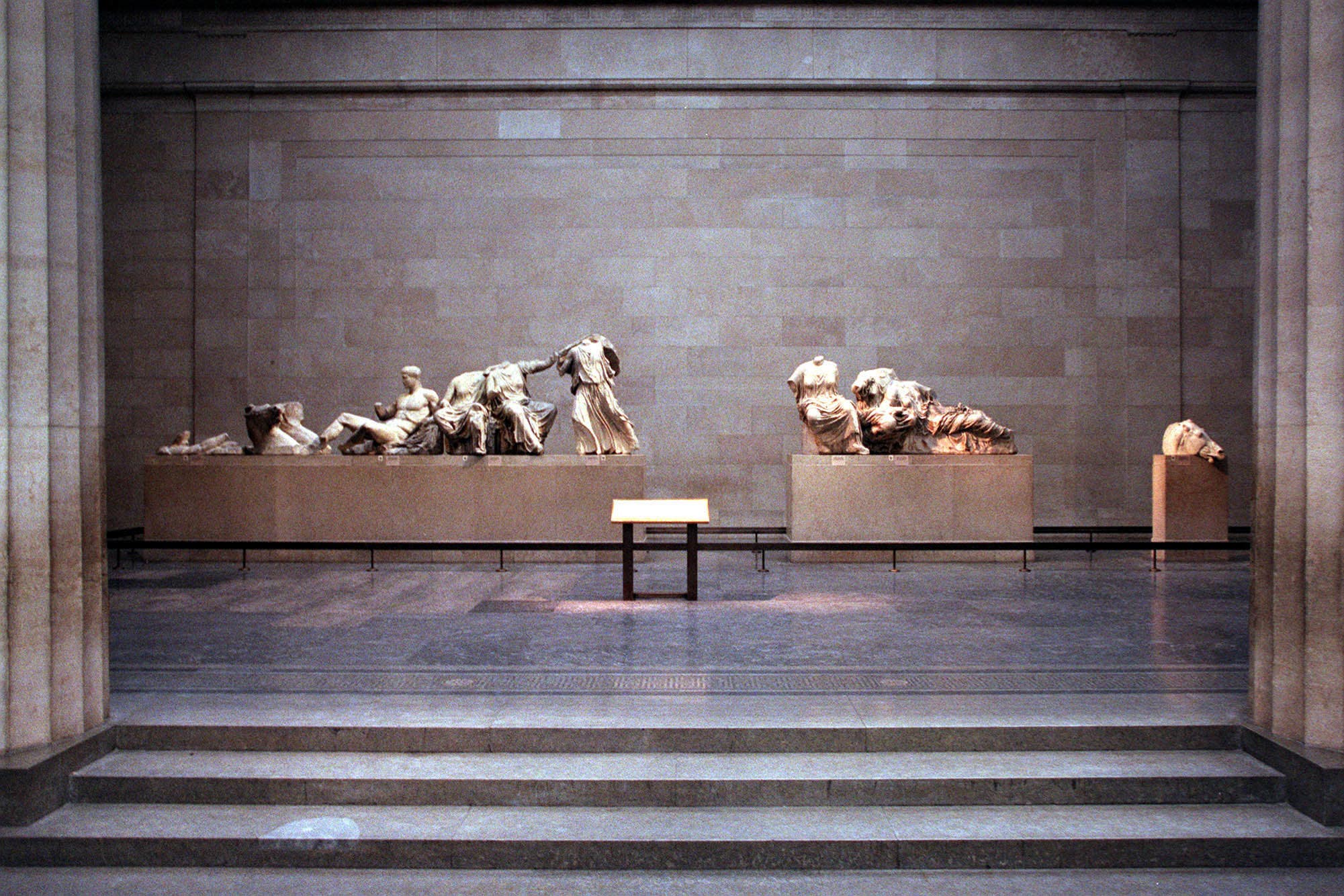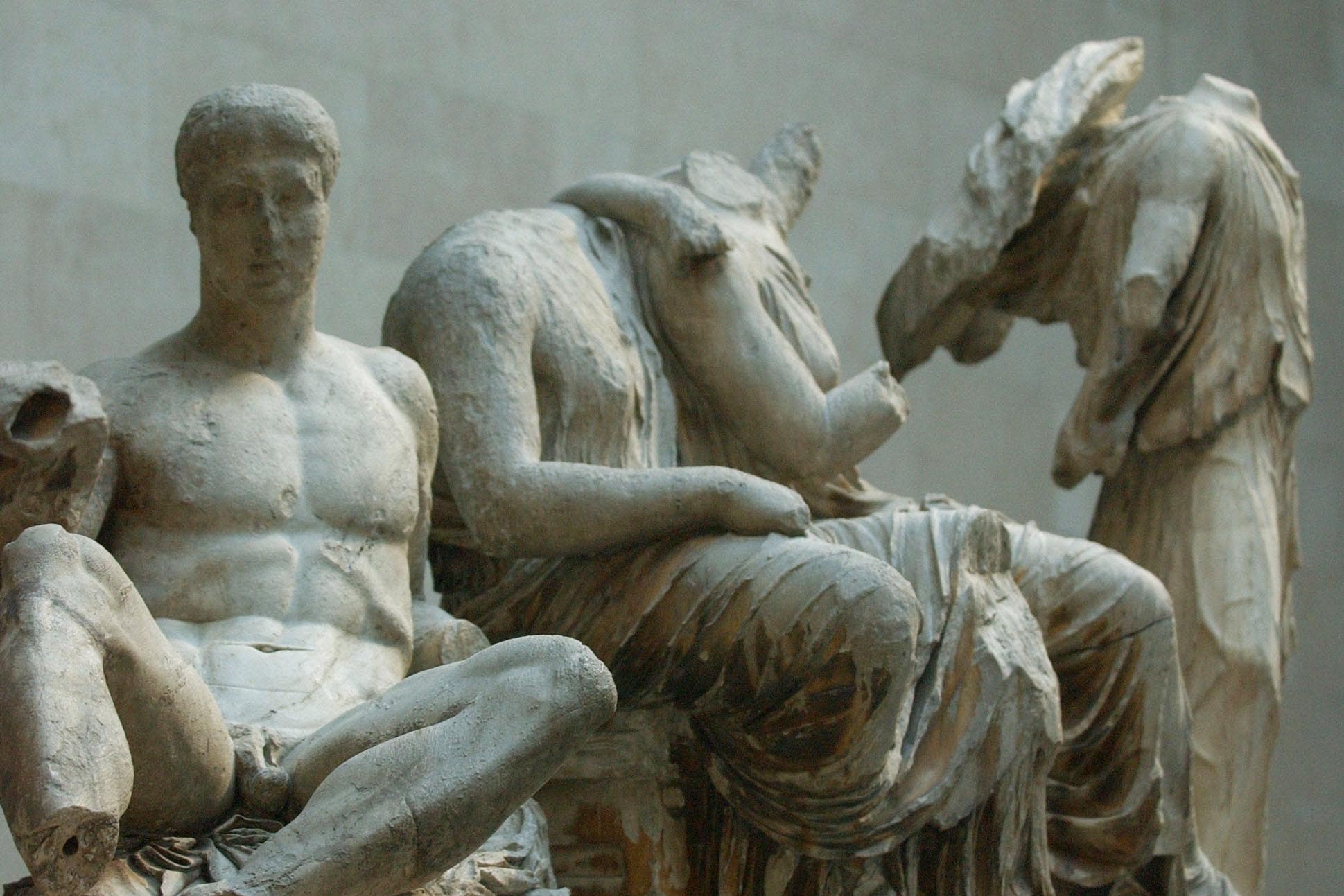
The UK will not return the Elgin marbles to Greece, Rishi Sunak has confirmed.
In a bid to protect the “huge asset” to the UK, Mr Sunak honoured the commitments made by former prime ministers Liz Truss and Boris Johnson to retain ownership of the collection, currently kept at the British Museum in London.
The Elgin marbles are a collection of sculptures that originally accompanied the Parthenon – and other structures inside the Acropolis of Athens – in Greece. The marbles were taken during the Ottoman Empire by Thomas Bruce, 7th Earl of Elgin, and have been held in the British Museum since 1832.

“The UK has cared for the Elgin marbles for generations,” Mr Sunak said ahead of a major defence and security summit in California. “Our galleries and museums are funded by taxpayers because they are a huge asset to this country.
“We share their treasures with the world, and the world comes to the UK to see them. The collection of the British Museum is protected by law, and we have no plans to change it.”
Though the collections displayed inside are under the jurisdiction of the British Museum, the prime minister has expressed that any return of the Elgin marbles would not be aligned with the government’s view.
Despite this, it does not intend to make any amendments to The British Museum Act of 1963, a piece of legislation that legally bars the institution from returning its collection permanently outside of extraordinary circumstances.
It comes after campaign group The Parthenon Project – backed by cross-party British politicians – said the collection could be returned to Greece as part of a short-term loan.
Greek prime minister Kyriakos Mitsotakis and British Museumchair George Osborne have discussed plans for the artefacts to be reunited with their contemporaries in the Acropolis Museum in Athens. A rotation of Greek masterpieces would be offered to the British Museum as part of this arrangement, some of which have never left Greece.
Notably, the Parthenon Project stated that this agreement would be the result of "the acceptance by both sides that this transformative cultural partnership is possible, despite the absence of a shared position on ownership of the Parthenon Collection."
While decisions about the care and management of specific collections are a matter for the museum and its trustees, the government has made clear that long-term loans would not be within the spirit of its position.

Greece has long campaigned for the return of the marbles, and in 2019, leading human rights lawyer Geoffrey Robertson QC accused the museum of being the “world’s largest receivers of stolen property” offering an unofficial “stolen goods tour…which stops at the Elgin marbles, Hoa Hakananai’a, the Benin Bronzes and other pilfered cultural property.”
The Elgin marbles are not the only contested objects housed inside the British Museum. In October 2021, it received a written request from the Federal Ministry of Information and Culture in Nigeria posing that various Nigerian antiquities should be returned.
Representatives from the Benin Royal Palace have made similar requests, with the Museum working together as part of the Benin Dialogue Group to build new museums in Benin itself which would house significant collections currently held in both the UK and Europe.







